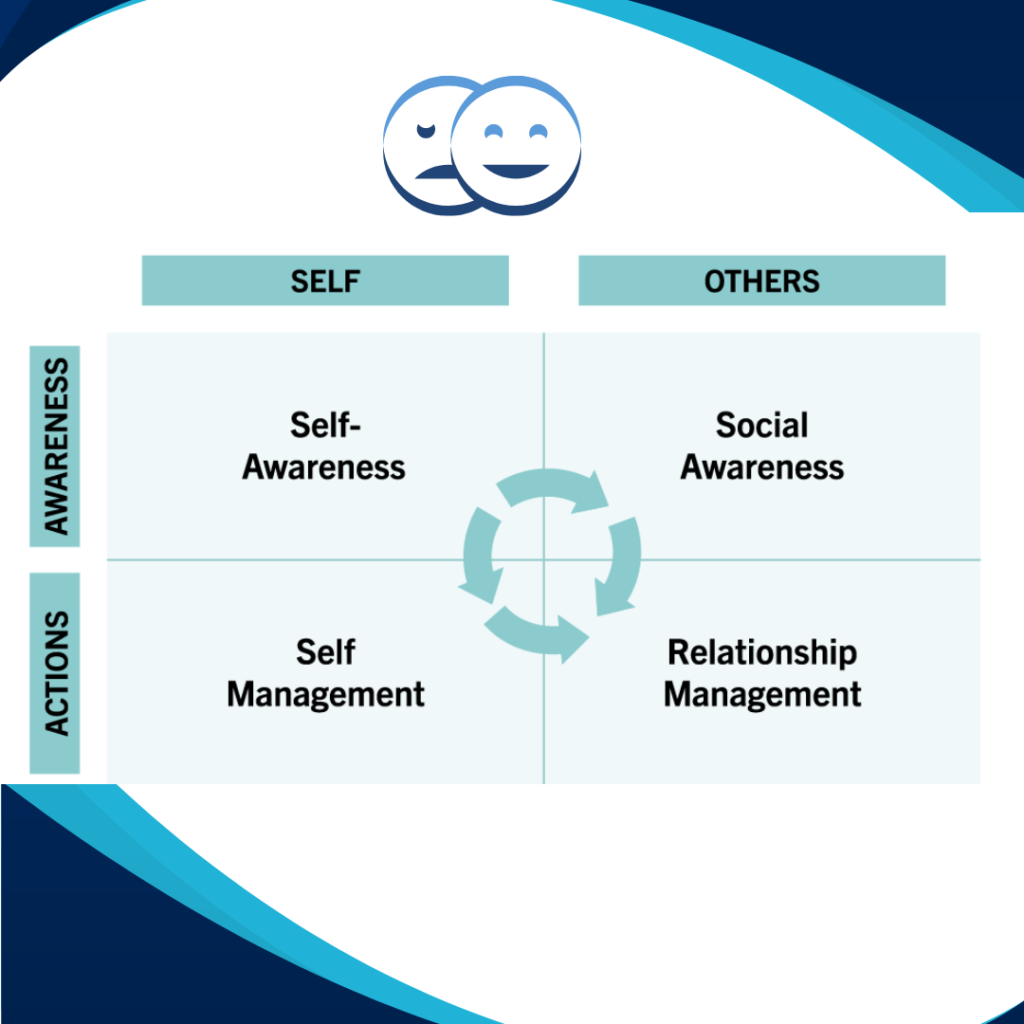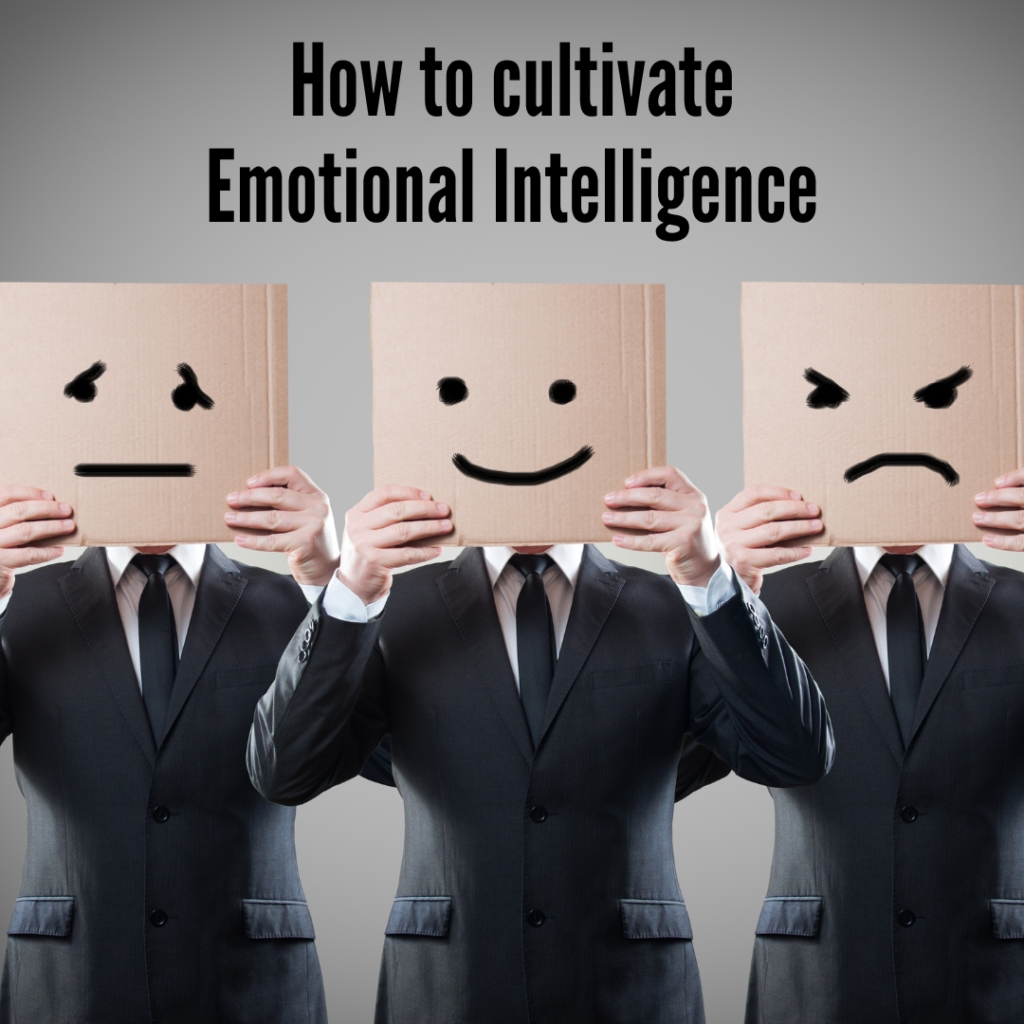Long before humans could speak, they communicated through their emotional disposition. It’s the neurological wiring of the human brain, that effectively interprets the emotional language, and contributed immensely to the evolutionary breakthrough of our species.
What are emotions for?
Evolution has placed emotions at the center of the human psyche. Each emotion offers a distinctive readiness to act. They guide us in facing predicaments and the tasks that are too important to be left to the intellect alone. When it comes to shaping our decisions and actions, our feelings and emotions play a pivotal role.
What is Emotional Intelligence (EI) and how it influences human decisions and interactions?
Emotional intelligence is the ability to understand and manage emotions; for oneself and others. It is a critical ability that aids in the improvement of conversations, management, problem-solving, and interpersonal relationships. If we go by the widely accepted definition, it’s established that emotional intelligence is crucial to navigating our daily actions and interactions. Then why is it that we are commonly advised to not let our emotions influence our decisions? Let’s find out.
Traditionally, psychology and philosophy view cognition and emotions as separate entities. Yet human history is brimmed with examples of life-altering instances, resulting from the intersection of emotions and cognition. This happens because, unlike the archaic theories, the two parts of the human brain, the emotional and the rational, operate in tight harmony and are impressively coordinated. But when emotions surge, this balance goes for a toss. The emotional mind takes control of the rational mind, thus influencing how we perceive, assess, and act in a particular situation.

What is not Emotional Intelligence?
Think of emotional intelligence and the first picture that comes to your mind is of an ever-smiling person, who is everyone’s favorite and doesn’t get on the ‘wrong side’ of people. Sadly, this is far from being emotionally intelligent and can lead to more emotional frustration. Let’s understand what is ‘NOT’ emotional intelligence:
• It’s not being nice, always: Expressing different emotions such as anger, frustration, and disappointment is only human. If being nice is making you feel miserable, express what you truly feel.
• It’s not avoiding confrontations: Emotionally intelligent people engage in confrontations, but strategically and productively. They understand that it’s not about the person, but a situation that needs to be remedied.
• It’s not controlling others’ emotions: Emotional intelligence is more about managing your own emotions than your ability to influence other’s behavior.
• It’s not emotional manipulation: Implementing deceptive strategies to control or victimize someone is not emotional intelligence, it’s emotional manipulation.
The four domains of Emotional Intelligence
As per Goleman’s Emotional Intelligence model, EI broadly comprises of four domains: self-awareness, self-management, social awareness, and relationship management. Nestled within each domain are more sub-capabilities that can be cultivated for effective emotional management in personal and professional life.
• Self-awareness: The basic understanding of how we feel and why we feel that way. The more we are aware of our feelings the easier it is to manage them.
• Self-management: The ability to manage one’s actions, thoughts, and feelings in flexible ways to get the desired results. Optimal self-regulation contributes to a sense of wellbeing, confidence, and connection with others.
• Social awareness: The ability to sense what other people think and feel. It’s about understanding their perspective through empathy.
• Relationship management: The ability to influence, coach, and mentor others, and resolve conflict effectively.
How to cultivate Emotional Intelligence
Emotional intelligence is a crucial skill that can substantially accelerate productivity and relationships in all dimensions of life. Here are a few effective ways that can help you enhance your EI:

• Practice self-awareness: Be aware of your emotions and the impact it creates on those around you.
• Take criticism positively: Leverage criticism for growth, reflect on the feedback received and resolve issues effectively.
• Empathize with others: Take empathy as a trait of emotional strength and not weakness. Leverage it to connect with others and build strong relationships.
• Be assertive while communicating: Learn to communicate your thoughts and opinions directly, without being disrespectful.
• Be an active listener: Listen with the intention to understand and gain clarity. Focus on non-verbal ques as well to be fully involved in the conversation.
• Practice and inspire positive attitude: Attitude is contagious, be it positive or negative. Find out ways that can instantly uplift your mood, even on not-so-great days and practice them actively inspire positivity within and outside.
Conclusion
Emotional intelligence is the linchpin that can transcend us from good to great, with the potential of being even better. It helps us to know ourselves better, understand others, engage in meaningful conversations, and build relationships that lasts for a lifetime. With emotional intelligence gaining prominence over the last couple of decades, it is getting clearer that human beings or the Homo Sapiens are more than just the ‘thinking species’, they are the ‘feeling species’; Driven by emotions, feelings, and interdependence on each other.





Leave a Reply